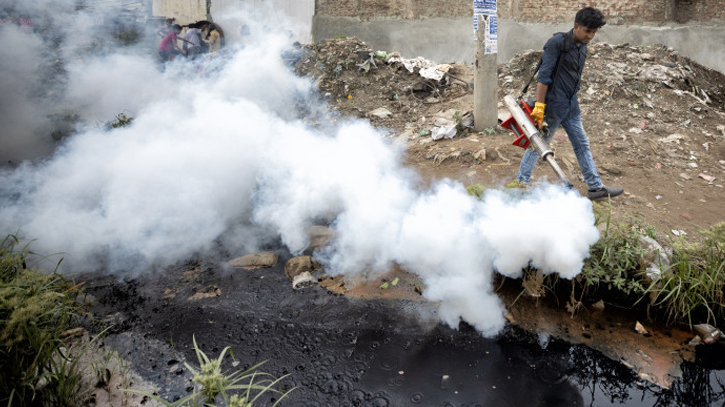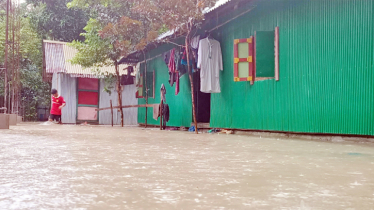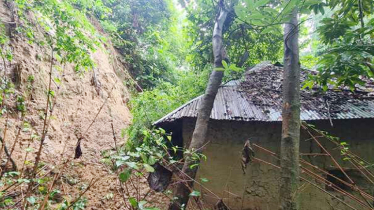
Photo : Collected
A recent research has unveiled an alarming surge in the growth rate of Culex mosquito, which is posing an additional threat to city-dwellers after the pervasive presence of dengue mosquitoes throughout the year. Despite a recent decline in dengue infestation, concerns are mounting regarding the consequences of Culex mosquito proliferation.
Entomologists have identified around 123 mosquito species in the country, with 16 species being more prevalent. Culex mosquitoes constitute over 95 percent of the limited mosquito species persisting year-round across various regions including the capital. The bite of these mosquitoes carries the ominous risk of Filariasis, ringworm, and skin diseases.
Culex mosquitoes typically become active in October with their prevalence diminishing as winter intensifies. However, an unexpected resurgence in Culex activity has been observed since February, although the impact is mitigated in some areas during the Nor’wester in April. Research findings project a higher density of Culex mosquitoes in February and March. To combat this surge, entomologists recommend a proactive approach, emphasising the cleaning of drains and sinks, along with the application of insecticides to eliminate larvae. There is a prevailing fear among entomologists that the growth rate of Culex mosquitoes may escalate, even in severe winters, as temperatures drop.
The preceding year witnessed a high increase in deaths and cases of Aedes mosquito-borne dengue in two cities. While dengue has been a longstanding issue in Bangladesh, the situation reached a critical juncture in 2023, with a substantial rise in cases leading to the highest recorded death toll.
Over the past 23 years, a total of 868 people succumbed to dengue in this country. Shockingly, in 2023 alone, the death toll surpassed 1,700, eclipsing the cumulative deaths of the previous 23 years. Although there has been a decrease in this rate, concerns linger as the new year unfolds, bringing the anticipation of a significant increase in Culex mosquito activity.
Researchers lament the lack of substantial progress in mosquito control efforts in Dhaka over the last 30 years. Effectively addressing this issue necessitates a multifaceted approach involving the eradication of larvae, continuous monitoring, and active communication with citizens. The efficacy of mosquito repellents and medicines is questioned, with a need for regular assessment. Despite common practices such as burning coils and spraying, there is a realisation that these measures provide no lasting solution.
The responsibility for controlling the Culex mosquito infestation lies with the two city corporations rather than individual residents. While the city corporations discuss various plans to tackle the mosquito issue, people remain skeptical about the adequacy and appropriateness of their initiatives. However, we want their proactiveness in this regard at the earliest.
Messenger/Fameema








